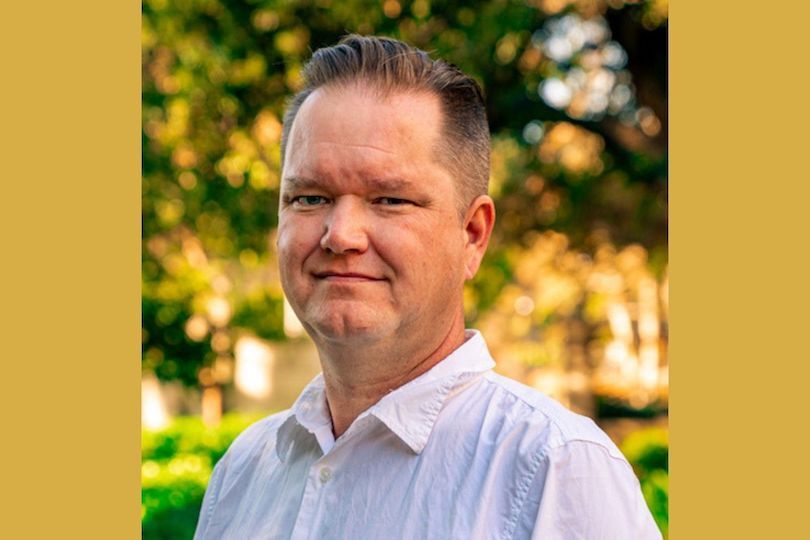[ad_1]
Colin J. Beck is Associate Professor of Sociology and affiliate of the International Relations Program at Pomona College. He is the author of On Revolutions (Oxford, 2022) and Radicals, Revolutionaries and Terrorists (Polity, 2015), and has published award-winning articles on revolutionary waves. His current research is on the interplay of knowledge accumulation and methodology in the study of revolution.
Where do you see the most exciting research/debates happening in your field?
I primarily study revolutions. Right now, the field is undergoing a bit of a renaissance. Some of this is related to the aftermath of the Arab Uprisings of 2011, and some of this is a consequence of theoretical development. There are two exciting things going on. First, we’re finally moving past a debate of structural causes of revolution versus the agency of revolutionaries to see how causes and mechanisms interact to shape the revolutionary process. The most exciting work in this vein is actually fairly micro in orientation, examining how decisions are made and are consequential in the revolutionary process which is a fairly uncertain and noisy environment. Second, studies of nonviolent resistance are becoming fully synthesized into the study of revolution, as opposed to an entirely stand-alone subfield of movement studies. Both of these developments are reinvigorating the field and making it catch up to the reality of 21st century revolutions.
How has the way you understand the world changed over time and what (or who) prompted the most significant shifts in your thinking?
I can think of three specific moments when my focus changed: one from experience, one from external events, and one from academic research. The first was when I was an undergraduate. I had always thought I wanted to be a practitioner in the field of international relations, something like the Foreign Service or IGO sector. But then I spent a semester abroad in India, shortly after it had begun to liberalize its economy. That experience made me realize that the most compelling story of globalization wasn’t in great power politics or diplomacy, but in what was happening on the ground. This is what made me into a sociologist. The second is right when I started my Ph.D. program in sociology. I began at Stanford one week after September 11th. And this motivated my first research project on the variation of Islamist political organizations across the Middle East and North Africa, and kept the dynamics of political violence in the forefront of my mind. The last emerged from trying to wed my interests in collective action to an understanding of larger global and historical forces. I was finding the social movements literature too narrow and too presentist. But when I discovered the study of revolution, I realized it combined all of my interests into one subfield. More recently, I have been enthused by the renewed engagement with movements and collective action by political scientists and international relations scholars. I think this is where the next advances in the study of mobilization are to come.
Your book Radicals, Revolutionaries, and Terrorists examines social movements from the 1500s to contemporary society. What methodology do you take to evaluate their significance?
That book, which is based on my lecture notes from a class I teach at Pomona, is mostly an attempt to synthesize what’s known about political violence across movements and events that are usually seen as distinct. So the goal was to include as many different possible cases and exemplars to show how patterns re-occur across time and space. Ultimately, I propose that most maximalist movements share more than they don’t. There are actually very few groups that could be considered just radical or just revolutionary or just terrorist.
How do understanding revolutions and social movements enrich one’s understanding of politics and International Relations?
International relations is sometimes taken to be the study of top-down processes or of macro-processes that aren’t directly shaped by society. Movements are one way that individuals and subnational groups actually directly affect the relations of states and the operation of a global system. In essence, they help complete the picture by providing a different level of analysis for the globally inclined student or scholar to consider.
You have written articles on using comparative methods to study revolutions. What are the advantages and limitations of this approach?
I tend to be quite critical of comparative methods and case studies. It’s not because I don’t believe in the method, rather it’s that I think it’s usually fairly poorly done. And comparative methodologists don’t seem to be helping the case either, with increasingly elaborate and detached philosophies of social science. So I think the best approach is to end up using what we call mixed methods. The most compelling studies I see combine careful comparison as well as analysis of general trends in a population, whether statistical or not. That way the disadvantage of any given approach can be balanced by the advantages of the latter.
When studying and teaching revolutions, how do you address the gap between theories and practice?
In my most recent book, On Revolutions, we actually have a whole chapter on this. What does it mean to engage in “practice” and how does that work with “theory”? From my own view, I think that the theory versus practice debate is actually a false dichotomy. Much of revolution theory owes a debt to actual revolutionaries who tried to draw up general lessons from their experience, and many scholars actually try to identify the recipe for successful revolutionary movements. While it can be difficult to see that in the classroom without explicit pandering, the connection is always there.
As a professor at a liberal arts college in the U.S., how do you address the Eurocentric biases in standard IR theories in your curriculum? What challenges did you encounter when teaching non-western politics and development?
Eurocentric ideas of the international system are definitely there, as is a very presentist mindset. For this reason, I think IR “Theory” with a capital T is pretty much a dead end. We shouldn’t be focusing on teaching undergraduates realism and constructivism and so forth. That’s a very 20th century way of thinking about the field. It’s better to focus on actual things, and demonstrate the usefulness of theory and paradigms through exemplars than abstract notions of how the world works. Probably the biggest challenge to this in the American context is the lack of global and historical knowledge the average student comes in with. American high schools have shifted away from teaching basic world history, and the ignorance of anything outside of the country or the past decade gets clearer everyday.
What is the most important advice you could give to students who are thinking to pursue a Ph.D. degree?
Don’t do it! Seriously. There’s a whole cottage industry out there of advice columns that say don’t go to graduate school for a Ph.D. There’s really only one instance where I could recommend it—when you can’t imagine doing anything else with your life and being happy. If that’s the case for you, then go in with eyes wide open—many who start Ph.D. programs won’t finish and many who finish won’t end up with permanent academic jobs on the other end. If you can be honest about that and imagine alternatives, then it’s much easier to find a productive and happy career.
What is the most important advice you could give to early practitioners and scholars of international relations?
I would advise anyone to read more history. Some of the most exciting things happening in IR right now seem to be historical. And not just modern history, but early modern or before. If we have general theories of relations between polities, then we should be able to see how those work or don’t work in very different contexts. Reading broadly is likely to spark scholarly imagination and create the novelty that distinguishes new work.
Further Reading on E-International Relations
[ad_2]
Source link



















